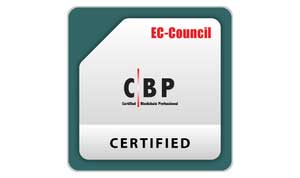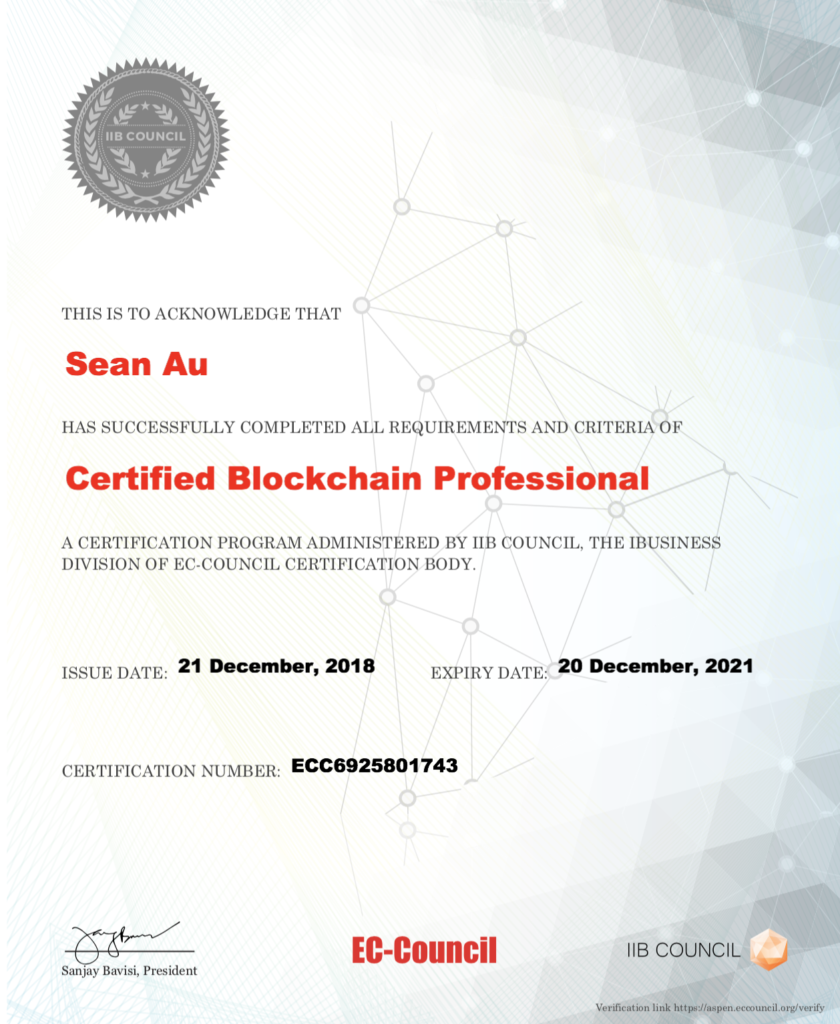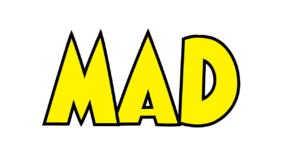
I finally managed to pass my IIB Council Certified Blockchain Professional exam. I had been putting it off since August as I was flat out with up-skilling and delivering Enterprise Ethereum training.
I had been in conversations with IIB Council earlier on in the year and got hold of the study materials in July 2018. The train the trainer process was very professional. I reviewed the initial draft 241 slide deck and then received the study guide. The study guide was protected with a license that was only valid for 30 days and disabled the copy and paste feature along with printing capabilities. Clever!
Then came the proctored exam which was well executed as well. It had to be booked 3 days in advance and had to be taken in a room with a clear desk. A chrome extension had to be installed which unfortunately required access to my camera, mic and other functions as well. At the examination time, an examiner (a real person) would log on and control my computer to turn off screen capturing features and recorded my screen. I then had to use my webcam to show the examiner the walls of my room, my desk (above and below) and the 2 sheets of paper that I was allowed. I then had to show my cell phone and place it away from me in an unreachable position and use the webcam to show the location of the phone.
The exam had 100 questions and 180 minutes was allowed. There were a few difficult questions (that you usually would never need to know) but designed to make it difficult to get 100% such as OP_VERIFY (I’ve worked with OP_RETURN only), the byte length of various block header parameters and also Hyperledger centric questions around Indy, Cello and Burrow. Random questions ones such as Kadena and Why3 along with Endianness of the EVM were thrown in as well.
The study notes could have been improved because it was a random hodgepodge of text that was probably copied from all sorts of places (text books, LinkedIn blogs etc) and the different sections were probably split up between various contributors hence the duplication of text. The grammar was poor in some places also.
The protor application was confusing because the automated email said that a Chrome plugin was required but when I emailed support, they said that the plugin wasn’t required. In the end, it was required after all. It was obvious that one hand was not talking to the other.
What was neat though was that practise questions were provided and questions were appropriate. For example there were no double negative questions that is really a test of your English rather than the subject.
All in all it was a great exam and a great process that is scaleable and on the whole, very smooth. My purpose of taking this exam and also the Certified Bitcoin Professional exam is not to collect certificates and prove my worthiness to the industry and make myself feel good. It is to understand how to assess knowledge in a fair and scalable manner. There are lots of different ways and knowing what they are allows me to be able to design an examination that is fair and accurately assesses the individual.
Oh, this is the certificate.
And it can be verified at: https://aspen.eccouncil.org/verify



